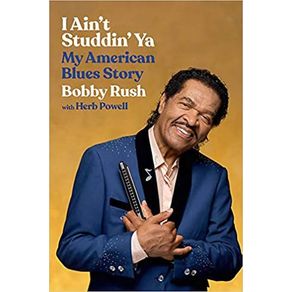This memoir charts the extraordinary rise to fame of living blues legend, Bobby Rush. Born Emmett Ellis, Jr. in Homer, Louisiana, he adopted the stage name Bobby Rush out of respect for his father, a pastor. As a teenager, Rush acquired his first real guitar and started playing in juke joints in Little Rock, Arkansas, donning a fake mustache to trick club owners into thinking he was old enough to gain entry. He led his first band in Arkansas between Little Rock and Pine Bluff in the 1950s. It was there he first had Elmore James play in his band. Rush later relocated to Chicago to pursue his musical career and started to work with Earl Hooker, Luther Allison, and Freddie King, and sat in with many of his musical heroes, such as Howlin' Wolf, Muddy Waters, Jimmy Reed and Little Walter. Rush eventually began leading his own band in the 1960s, crafting his own distinct style of funky blues, and recording a succession of singles for various labels. It wasn't until the early 1970s that Rush finally scored a hit with "Chicken Heads." More recordings followed, including an album which went on to be listed in the Top 10 blues albums of the 1970s by Rolling Stone and a handful of regional jukebox favorites including "Sue" and "I Ain't Studdin' Ya."
And Rush's career shows no signs of slowing down now. The man once beloved for performing in local jukejoints is now headlining major music/blues festivals, clubs, and theaters across the U.S. and as far as Japan and Australia. At age eighty-six, he is still on the road for over 200 days a year. His lifelong hectic tour schedule has earned him the affectionate title "King of the Chitlin' Circuit," from Rolling Stone. In 2007, he earned the distinction of being the first blues artist to play at the Great Wall of China. His renowned stage act features his famed shake dancers, who personify his funky blues and his ribald sense of humor. He was featured in Martin Scorcese's The Blues docuseries on PBS, a documentary film called Take M

